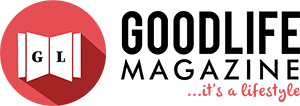
As inflation continues to spiral, major building materials markets in some parts of the country have witnessed a surge in prices, leaving many private developers jittery over maximising profits on housing projects.
Manufacturers are passing on the rapidly rising cost of raw materials to their customers, adding to concerns that inflation, which increased by 18.76 per cent in March from the previous 17.92 per cent recorded in February 2021 may put further pressure on the economy.
The increasing cost has also put the hope of becoming potential homeowners by Nigerians in limbo. About 60 per cent of the total cost of building construction goes to materials while the remaining 40 per cent is spent on labour.
Prices of essential building components like sand, blocks, roofing sheets, tiles; paints and wood have witnessed an increase in prices by over 15 per cent in the past one month in cities across the country. Most of the developers still rely on imported materials.
Last week, the upper Chamber of the National Assembly moved to cut the skyrocketing costs of component in building construction by urging the Federal Government to introduce liberal policies to stimulate more investment in the manufacturing of products.
The upper chamber said such policies should include provision of industrial and larger tax incentives to encourage local investments.
A survey at the weekend revealed that tipper load of sand moved from 65,000 in March to about N76, 500 now in some states of the Southwest.
Similarly, in Lagos, Rivers, Kano, Abuja, Anambra, Ondo and Oyo states, prices of sanitary fittings like Tryford (w/c) close couple with big hand basin, increased from N34, 000 as of February to N40, 000. The side flush, which was sold for N16, 500 went up to N23, 000 while the Ariston water heater (15-litres) moved from N40, 000 to N45, 000.
The cost of wood is also rising, a Lagos-based developer that got quotation of N170,000 for wood in February told The Guardian that he was disappointed to learn that the rate has gone up to N400,000 by the second week of April.
Also, in Kano, Ogun and Lagos respectively, prices of corrugated iron roof sheet per bundle rose from between N17, 500 and N18, 500 in February to the current rate of N29, 500.
The price of floor and wall tiles has also moved up in some locations like Lagos, Onitsha, Oyo and Ogun. A 60 by 60 tile product goes for between N5, 500 and 7,500. The 40 by 40cm are selling at between N2, 300 and N3, 900 while a 25 by 50cm size is sold for 2,500 depending on the design and quality.
Besides, prices of paints have also been on the rise since December with the price of 20 litre emulsion ranging between N4, 500, and N8, 000, depending on the brand.
A specialist in paint products based in Abia State, Mr. Onyebuchi Obialor, traced the increase to high cost of importing chemicals used for the production of paints.
Speaking with The Guardian, a paint dealer based in Akure, Mr. Olatubosun Ojo, explained that the price of paint went up generally compared to the market situation last year when 20 litre sold for N5, 000, adding that quality paint products now sells between N6,000 and N6,500. While a four litre gallon starts from 1,200 depending on the brand as against the former price of between N800 and N900. He said the price fluctuations have impacted negatively on patronage.
Speaking on the development, a professor of estate management at the University of Lagos, Austin Otegbulu, explained that inflation trends have a multiple impact on the housing sector due to the cost of importing building materials and exchange rate.
He said Return On Investment (ROI) in the housing sector would reduce in some areas where tenants can’t pay while the cost of capital for housing might go higher.
click here to read the full article
AUTHOR: Sammylee
DATE PUBLISHED: June 19, 2021
SOURCE: Glrealestatecoop.com
PHOTOCREDIT: Glrealestatecoop.com












